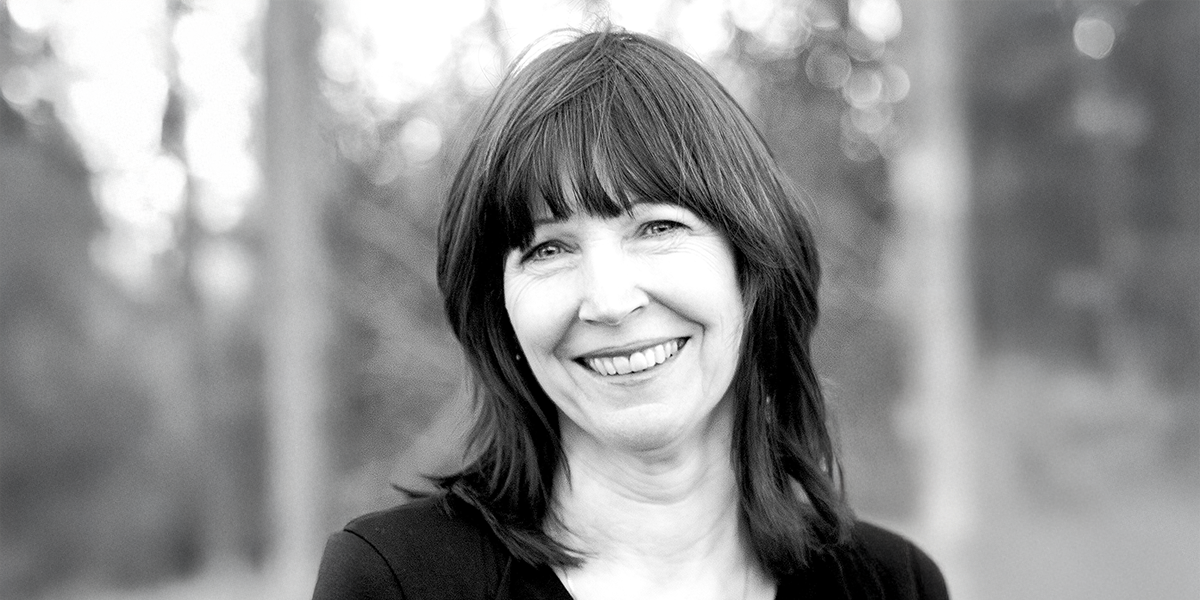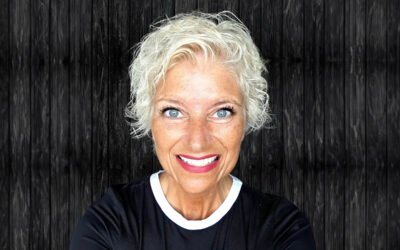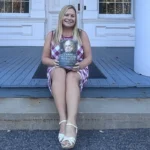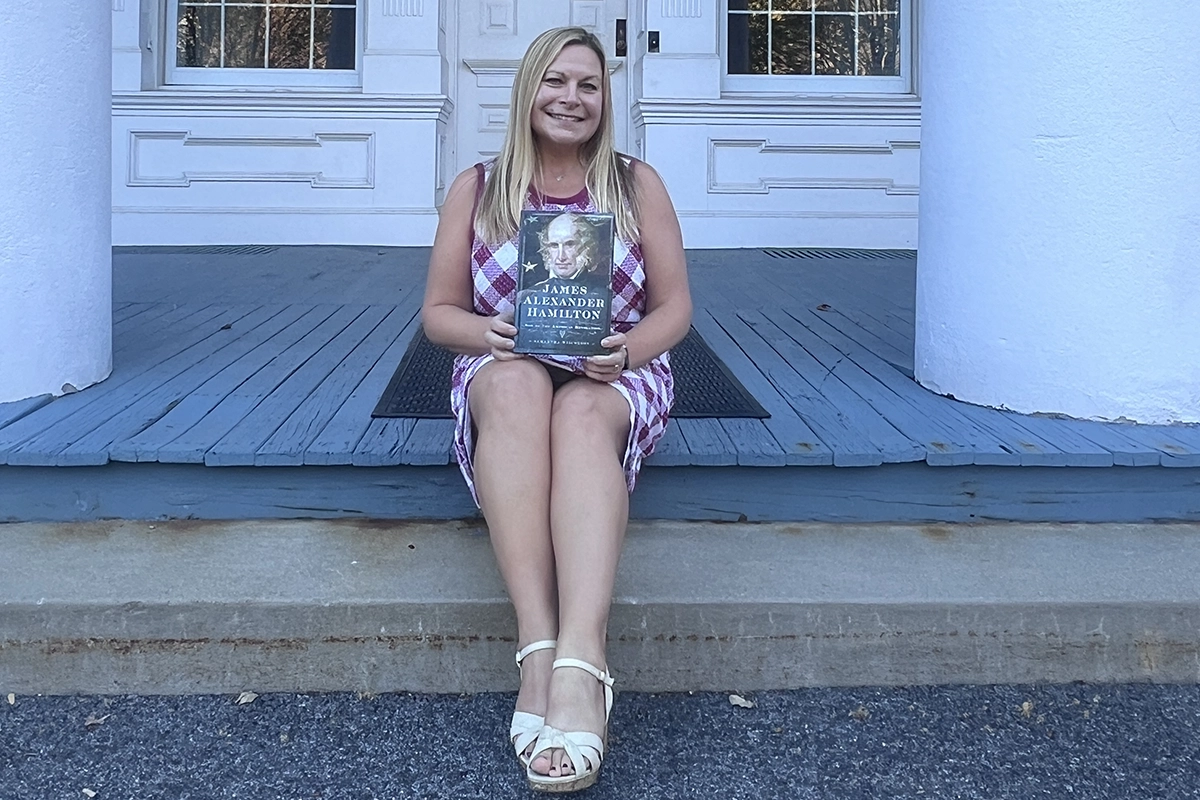Karen King Shares Her Journey From Children’s Author to Queen of Psychological Suspense

PHOTO: Karen King at her writing desk in Spain, where she crafts her bestselling novels filled with emotion, intrigue, and unforgettable characters.
A Forty-Year Writing Career of Twists, Emotion, and Reinvention
Karen King reflects on her versatile writing journey, genre shifts, creative process, and how personal experiences and adaptability have shaped her bestselling psychological thrillers and women’s fiction novels.
Karen King stands as a shining example of creative versatility and enduring storytelling talent. With a remarkable forty-year career that spans genres and generations, she has written everything from beloved children’s tales to gripping psychological suspense and heartfelt women’s fiction. Her ability to continually reinvent her storytelling voice while maintaining a deep connection with readers is nothing short of inspiring.
Her latest novels, Don’t Trust Him and The Runaway Wives, showcase her mastery of emotional nuance and dramatic tension. Whether she’s exploring the dark twists of a psychological thriller or capturing the rich emotional landscapes of women navigating life’s turning points, King writes with a rare authenticity that resonates across age groups and genres.
In this insightful conversation, Karen reflects on her journey from writing for Jackie magazine to becoming an international bestselling author. She shares the motivations behind her genre shifts, the craft behind her intricate plots, and the lessons learned from decades of writing and teaching. Her passion for storytelling and her generosity in sharing her wisdom are evident in every response.
It’s a true pleasure to feature Karen King in Novelist Post, and we hope this interview both informs and inspires writers at every stage of their own creative journeys.
Karen King is a gifted, genre-spanning storyteller whose emotionally rich and suspense-filled novels captivate readers around the world.
What inspired you to shift from writing children’s books and young adult novels to psychological suspense and women’s fiction?
I enjoyed writing for young children and teenagers and did this for many years whilst my four daughters were young, but I always had the desire to write a romance novel. However, as a jobbing author I was writing for a living and didn’t have the time to write an 80k novel that I might not sell. When my daughters were grown up, I took the chance and my first romcom, Never Say Forever, was published as a pocket novel and is now republished by Headline. I have since had twelve women’s fiction novels published, my latest one, The Runaway Wives is published by Boldwood. I started writing psychological suspense for Bookouture five years ago with The Stranger in my Bed. My seventh psychological thriller, Don’t Trust Him, has just been published.
How do you balance the emotional depth needed for women’s fiction with the intensity required for psychological thrillers?
I enjoy writing about relationships and look on the two genres as two halves of the same coin. My women’s fiction books are when the relationship goes right and my psychological suspense are when the relationship goes wrong. My women’s fiction focus on emotions, romantic feelings and expectations whereas my psychological suspense focus on twists, doubts and fear. In the women’s fiction the heart flutters, in the suspense novels the heart races.
“My women’s fiction books are when the relationship goes right and my psychological suspense are when the relationship goes wrong.” — Karen King
Can you share a bit about your writing process when developing such intricate plots full of twists and turns?
The most important thing when writing psychological suspense is the timing of the twists. I try to grab the reader’s attention straight away with a dramatic prologue or opening chapter, then go back and forth between timelines and sometimes viewpoints. I keep the chapters short and often write in the first-person present tense to add pace and drama. I work out the general plot and twists and discuss them with my editor before starting to write the book.
How has living in Spain influenced your writing or your daily creative routine?
I’ve set, or partly set, several books in Spain – four romance novels and one psychological suspense. I live in the Spanish campo and living in such a beautiful, tranquil setting has been a real inspiration for my writing – although it isn’t without its challenges, and these have found their way into my books too! My writing routine is more relaxed now as I work by a weekly word limit rather than a daily one, so if we fancy a day out by the coast I take a day off and double my word count the next day. Also, I can spend more hours writing as I no longer do school visits, run workshops or mark assignments. My husband Dave loves to spend hours working in the garden, so apart from coffee breaks I can write for hours undisturbed.
What was the most challenging part of writing your latest novel, Don’t Trust Him?
Not making it too romantic and keeping up the intrigue. All the women are besotted over the ‘hot single dad’ at the school gates, but it’s Sarah who Charlie chooses. Despite her reservations not to get involved again Sarah falls for Charlie and due to a flood in her house, moves in with him but then starts to get suspicious about why his ex-wife has disappeared off the face of the Earth and not bothered to come back to see her two young daughters. It was tricky to balance the emotional side of their relationship with Sarah’s fear that Charlie might have something to do with his ex’s disappearance, and her worry that someone is stalking her and her desire to keep her son Liam safe.
“Living in such a beautiful, tranquil setting has been a real inspiration for my writing.” — Karen King
Many of your novels explore family dynamics and secrets; what draws you to these themes?
I love writing about relationships, especially family relationships. Most families have their secrets, arguments, sibling rivalries and it’s interesting to explore that. For example, in The Girl Next Door I explore how far someone would go to protect their child. Whereas The Mother in Law deals with the age-old theme of a mother thinking the bride isn’t good enough for her son so how far will she go to prevent the wedding.
How do you approach creating characters that readers can both empathize with and question at the same time?
I believe that characters make stories, so I get to know my characters well before I start writing. I do a character profile for each main character, including the negative traits of their personality. No one is completely good or completely bad so it’s important to make your characters well rounded. I make notes of their appearance, likes and dislikes, background, aspirations and fears so I know how they will react to situations.
“Be adaptable and flexible… if you write from the heart, you will find a market for your story eventually.” — Karen King
How does your experience as a writing tutor shape the way you view your own work?
I had been a published writer for many years before I became a writing tutor, so my tutoring was based on my own working experience. The mantra ‘know your market, know your reader,’ has served me well over the years so that is always my starting point. However, I sometimes find that being a writing tutor makes me too critical of my first drafts, so I try to leave my ‘tutor hat’ off until I have the basic story down then I go over it and critique it.
What advice would you give to aspiring authors trying to build a long and versatile writing career like yours?
Be adaptable and flexible, trends change and if you want to make a living as an author you need to adapt to them. However, if you aren’t writing for a living, then write the idea that is bouncing in your mind and keeps you awake at night. If you write from the heart, you will find a market for your story eventually.

















